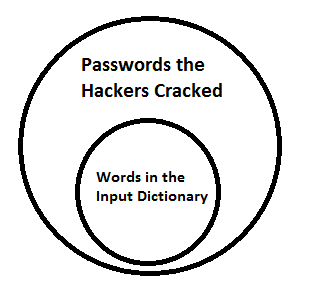CCS Paper Part #2: Password Entropy

This is part #2 in a (mumble, cough, mumble) part serious of posts discussing the results published in the paper I co-authored on the effectiveness of passwords security metrics. Part #1 can be found here . I received a lot of insightful comments on the paper since my last post, (one of the benefits of having a slow update schedule), and one thing that stands out is people really like the idea of password entropy. Here’s a good example: “As to entropy, I think it would actually be a good measure of password complexity, but unfortunately there's no way to compute it directly. We would need a password database comparable in size (or preferably much larger than) the entire password space in order to be able to do that. Since we can't possibly have that (there are not that many passwords in the world), we can't compute the entropy - we can only try to estimate it in various ways (likely poor)” First of all I want to thank everyone for their input and support as I really apprec...




